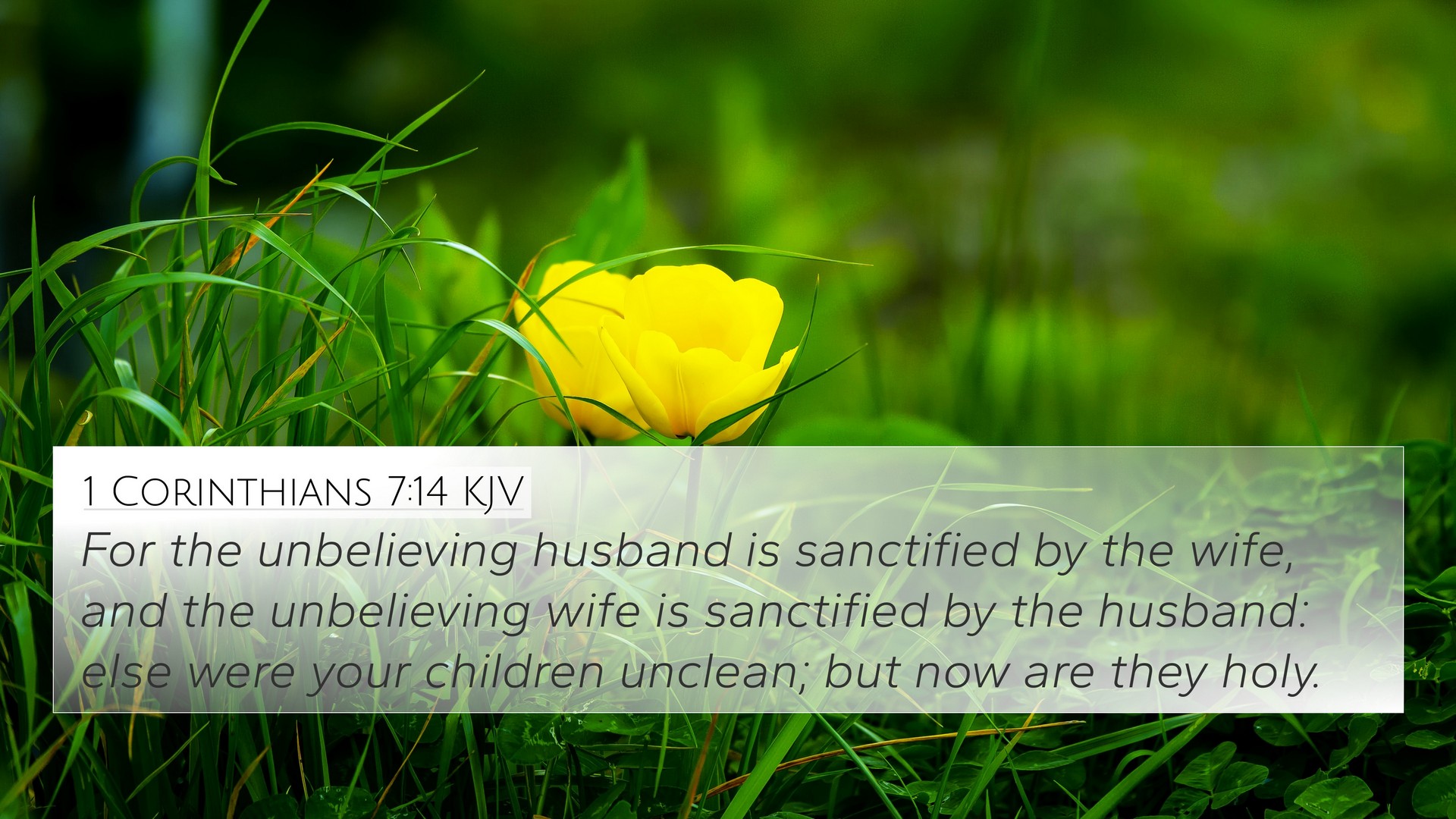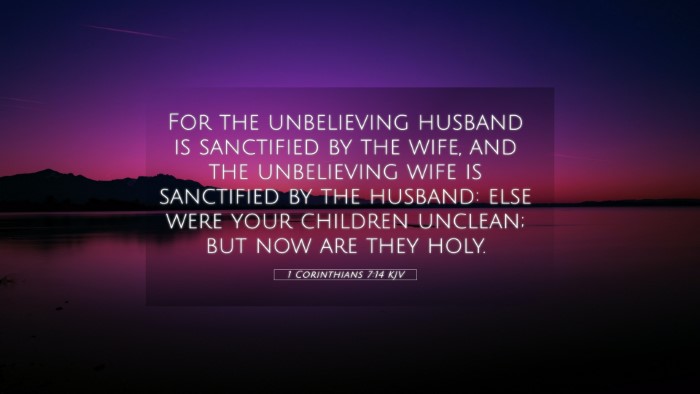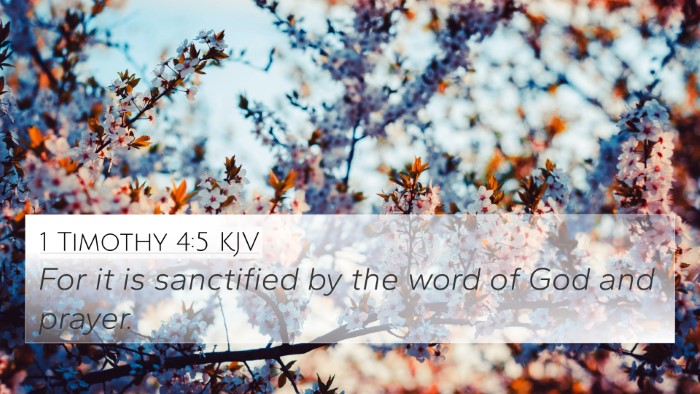Understanding 1 Corinthians 7:14
Bible Verse: 1 Corinthians 7:14 - "For the unbelieving husband is sanctified by the wife, and the unbelieving wife is sanctified by the husband: else were your children unclean; but now are they holy."
This verse is a profound statement regarding the sanctity brought into a household by a believing spouse, especially in cases where one partner is not a believer. The Apostle Paul, in this part of his letter to the Corinthians, addresses the complexities and spiritual dynamics within mixed-faith marriages.
Commentary Insights
-
Matthew Henry:
Henry emphasizes that the presence of a believing spouse has a sanctifying effect on the entire household. He argues that this sanctification can relate not only to physical purity but also to a spiritual state wherein God’s grace is more evidently at work within the family unit.
-
Albert Barnes:
Barnes notes that the verse highlights the importance of faith in the home setting. An unbelieving husband or wife may still receive blessings due to their spouse's faith. This principle illustrates God’s overall ability to bring holiness into even imperfect situations and relationships.
-
Adam Clarke:
Clarke discusses the implications of the term "sanctified," interpreting it to mean 'set apart for God’s purposes'. He suggests this does not guarantee salvation for the unbeliever but indicates a form of divine favor on the family as a result of one partner's faith.
Key Themes and Cross-References
1 Corinthians 7:14 touches on the themes of faith, holiness, and the impact of belief on family dynamics. Here are some cross-referenced scriptures that connect with this verse:
- Genesis 43:32: Discusses how the Egyptians would not eat with the Hebrews as an expression of cultural and religious separation, hinting at the complexities of intermarriage.
- Exodus 20:5: Addresses the consequences of idolatry and how the iniquities of parents can affect future generations.
- Matthew 10:34–36: Talks about the conflicts that faith can create within families and the cost of discipleship.
- 1 Peter 3:1: Advises believing wives to act in ways that may win their unbelieving husbands without words.
- Acts 16:31: Promises that belief in Jesus Christ leads not only to individual salvation but can extend to families.
- Romans 11:16: Introduces the notion that the roots of faith can affect branches, emphasizing the communal nature of salvation.
- 2 Timothy 1:5: Refers to how a faithful grandmother and mother influenced Timothy's faith, showing the generational impact of belief.
Theological Implications
The sanctification of the unbeliever through the believer reflects a theme prevalent throughout the New Testament: the transformative power of faith. This passage encourages believers to remain steadfast in their faith within mixed marriages, serving as a catalyst for the potential spiritual awakening of their spouses and children.
Application of the Verse
Understanding this verse encourages believers in mixed-faith relationships to foster a spiritually nurturing environment. It serves as a reminder of the potential for spiritual growth and sanctification through faith-filled relationships and the responsibilities that come with it. The implications extend into communal worship and family life, warranting discussions on how faith can permeate social and family structures.
Conclusion
In summary, 1 Corinthians 7:14 affirms the power of faith to influence and sanctify not only individuals but entire households. It brings forth a message of hope and encouragement for believers navigating the complexities of partnerships with unbelievers.
Tools for Further Study
- Bible concordance for identifying similar themes across the Scriptures.
- Cross-reference Bible study techniques to see how various Scriptures interact with this verse.
- Comprehensive Bible cross-reference materials to enrich understanding.
Related Topics
- How to find cross-references in the Bible
- Identifying connections between Old and New Testament
- Cross-referencing Psalms with New Testament teachings










